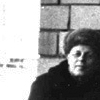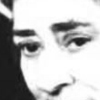Exile in Gorky 1980-1986
Sakharov was stirred to strong public protest by the 1979 Soviet intervention in the Afghanistan civil war. The Soviet Politburo did not dare to arrest him. Instead they decided to exile him to Gorky, a major city on the Volga River which was then closed to foreigners.
“On January 22, 1980 I was detained on the street and taken by force to the USSR Procurator’s office. First Deputy Procurator General Alexander Rekunkov informed me that a decree of the presidium of the USSR Supreme Soviet had deprived me of the title of Hero of Socialist Labor and of all other decorations and awards. I was taken that same day on a special flight to Gorky together with my wife, Elena Bonner, who was allowed to accompany me.”
“The Deputy Procurator of Gorky explained the terms of the regimen decreed for me: overt surveillance, prohibition against leaving the city limits, prohibition against meeting with foreigners and ‘criminal elements,’ prohibition against correspondence and telephone conversations with foreigners, including scientific and purely personal communications, even with my children and grandchildren.”
Sakharov remained in exile for almost seven years. He suffered from the isolation, but continued to struggle by every available means to defend his rights and human dignity. During his exile in Gorky, support from Western physicists was of vital importance for Sakharov. They sent him reprints of their scientific articles and campaigned in the media in his defense, aided by magazines such as Physics Today. During those years in Gorky, Sakharov wrote a book of autobiographical memoirs. Three times the KGB stole Sakharov’s manuscript (more than 1000 pages). Each time he rewrote his book from memory. Sakharov continued writing letters and appeals in defense of persecuted human rights activists. He wrote an “Open letter on Afghanistan,” “What the USSR and the USA must do in order to preserve peace” and other essays that were smuggled out and published in the Western press. The Soviet establishment responded with an article in the newspaper Izvestiia, signed by four members of the Academy of Science, in which Sakharov was accused of calling for a thermonuclear war against the Soviet Union. (Read more: "Andrei Sakharov From Exile" Pamphlet)
“It is necessary to defend the victims of political repression (within a country and internationally, using diplomatic means and energetic public pressure, including boycotts). It is also necessary to support the demand for amnesty for all prisoners of conscience, all those who have spoken out for openness and justice without using violence. The abolition of the death penalty and the unconditional banning of torture and the use of psychiatry for political purposes are also necessary.”
Protesting against the persecution of himself and of his family, Sakharov went on hunger strikes. For more then 200 days he was totally isolated from the outside world. Even his wife was not allowed to see him, and she was threatened with a criminal investigation. In an open letter to Anatoly Aleksandrov, the president of the Soviet Academy of Sciences, Sakharov described his torments:
“I alone am responsible for all my actions, which are the result of convictions formed over a lifetime. As soon as Elena Bonner married me in 1971, the KGB adopted a sly and cruel plan to solve the “Sakharov problem.” They have tried to shift responsibility for my actions onto her, to destroy her morally and physically. They hope to break and bridle me, while portraying me as the innocent victim of the intrigues of my wife.”
Most of Sakharov’s friends in the human-rights movement were unable to appreciate his motivation for his hunger strikes and blamed Elena Bonner for his sufferings. Sakharov was sorry to see such a gap in understanding, but claimed his human right to make decisions that he felt righteous and vitally necessary for him personally.
The ordinary Soviet citizen knew little of Sakharov's efforts and was simply told he was a traitor. But it is likely that many people among the Communist elite were gradually influenced by the principled stand of one of their own, with his insistence that the regime was deeply corrupt and illegitimate. For whatever reason, many of the leaders themselves gradually followed Sakharov in questioning the Soviet system.


